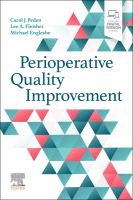Physical Address
304 North Cardinal St.
Dorchester Center, MA 02124

Key Points Description of the quality improvement (QI) methodology used is essential to ensuring the process can be replicated. The most common QI methodologies are Six Sigma, Lean Thinking, Model for Improvement, Statistical Process Control, and Theory of Constraints. It…

Key points The planning of quality improvement greatly benefits from articulating a program theory: It improves clarity around what the intervention is attempting to accomplish and the mechanisms of change. A program theory can also identify stakeholders and conditions for…

Key Points All payment models fundamentally seek to leverage financial incentives for healthcare organizations, providers, and patients to drive behavior changes that reduce spending on healthcare services and improve health outcomes. Understanding the basic design of payment models is necessary…

Key points The medical malpractice system does a poor job of improving patient safety and quality. Targeted risk reduction initiatives are associated with lower malpractice costs. Initiatives can be tailored to individual departments or expanded entity-wide. Successful areas of focus…

Key points ▪ Create passion for change and link to everyone's values. ▪ Team engagement, involvement, and ownership is essential to achieve and sustain change. ▪ Continuous transparent measurement must be established from the beginning. ▪ Maintain compliance measures and…

Key points Population health in the United States lags behind that of its peers. Undergoing major surgery serves as a teachable moment in which patients are especially motivated to adopt risk-reducing health behaviors. Perioperative interventions that screen for and intervene…

Key points The SQUIRE 2.0 (Standards for Quality Improvement Reporting Excellence) guidelines provide a framework around which to construct and report an improvement project. The guidelines provide a format recognized by mainstream journals for the reporting of quality improvement studies.…

Key points Publication in perioperative medicine in a broad sense can be defined as work investigating the generation of value (quality ÷ cost) through the organization, operations, and metrics of care provided throughout the perioperative period. Publications in this area…

Key points Uptake of qualitative methods in perioperative medical research has been relatively slow because of some misapprehensions about these methods. Qualitative methods are most appropriate for answering “how” questions about processes as they occur in their everyday contexts. Perioperative…

Key points Closing gaps in care outcomes by race, ethnicity, and other measures of health inequity must be an integral part of quality improvement. Health disparities exist in every aspect of perioperative care and medicine. Addressing health equity involves understanding…